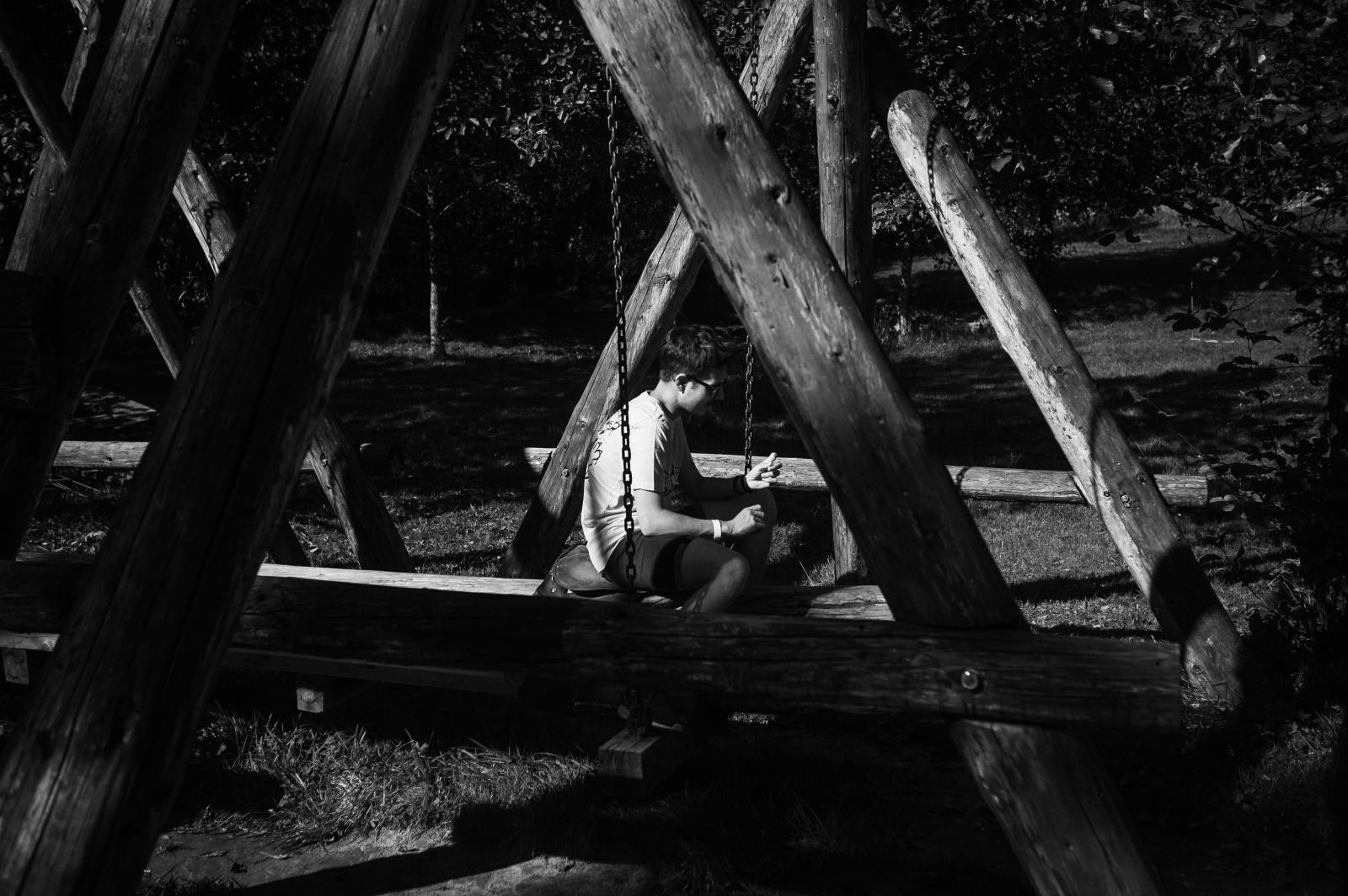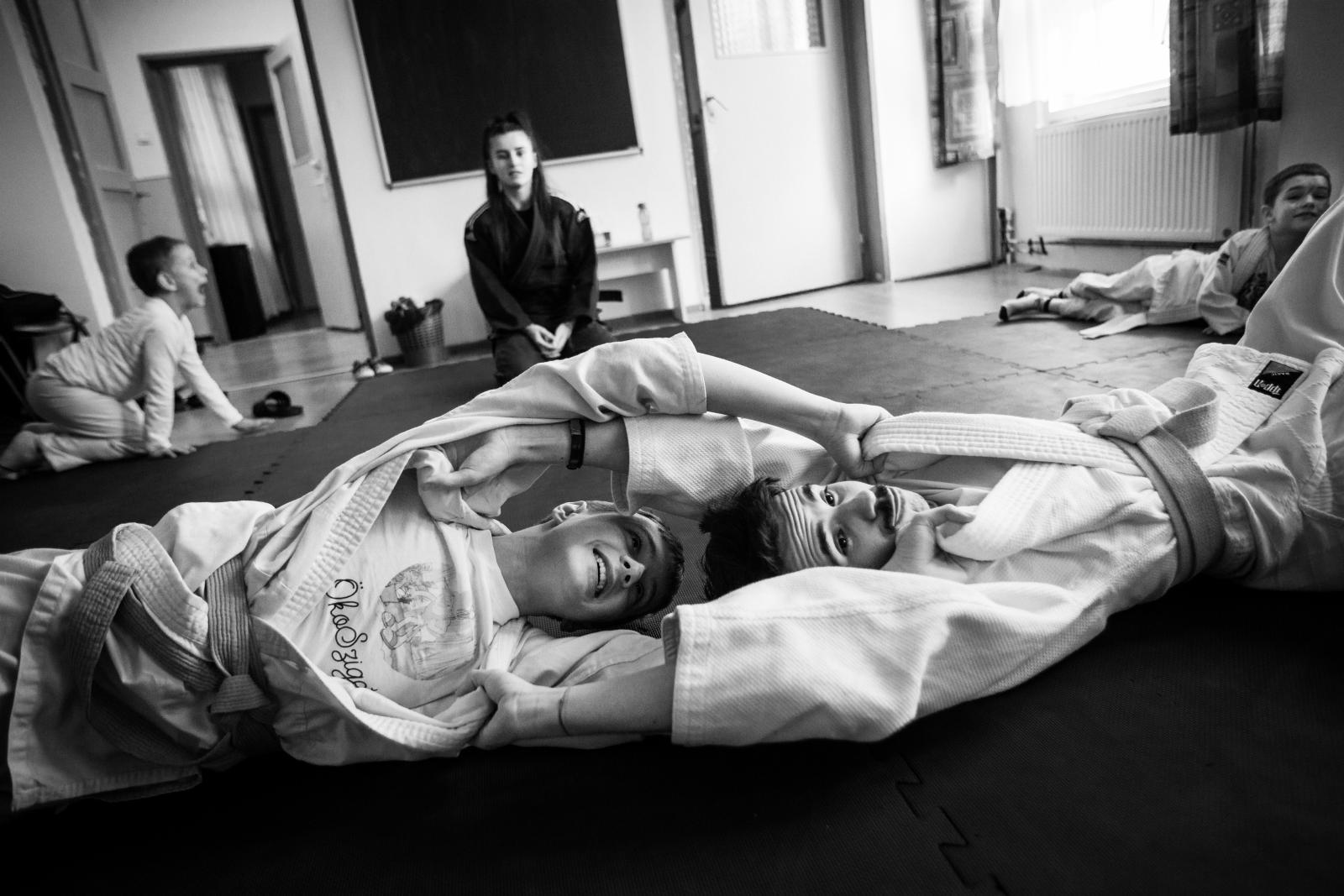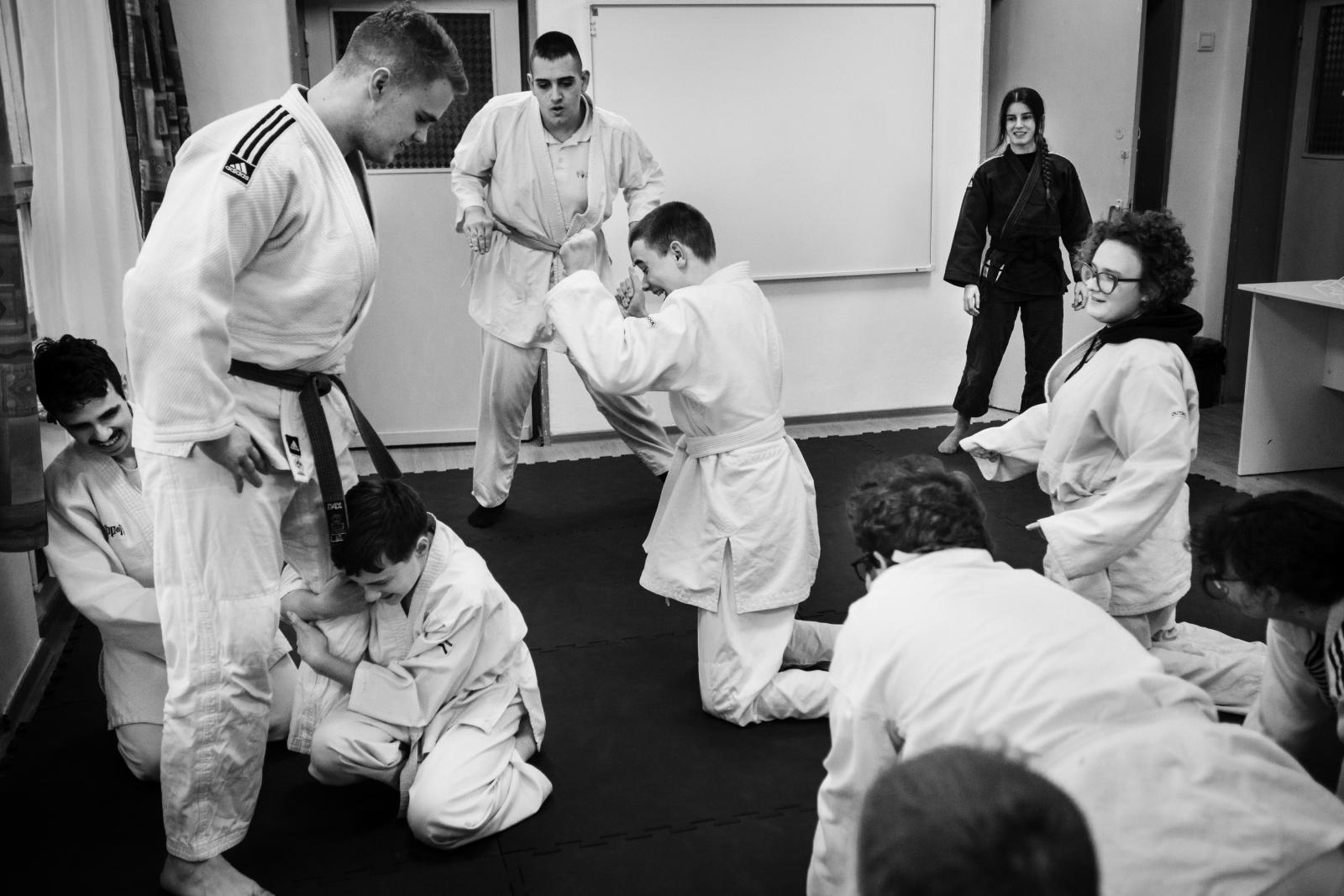Public Project
The judo team
Summary
In Romania, the main support for those diagnosed with autism is provided by associations founded by parents of children with autism. Among the programs run by the Autism Association Baia Mare is also a judo one. It is adapted judo, with specific rules that have as their main objective the safety of athletes with special needs. Children and young people train twice a week, and the goal is to play together, to have fun, to be a team, even though judo is an individual sport.
The coach brought in Carmen Szatmary to assist. At the time, she was in her final year at the Faculty of Physical Education. Now 22 years old, Carmen has been practicing judo since she was six and is currently the team’s coach. Training sessions are held twice a week, each lasting an hour and a half.
The main goal of the program is not competition, but rather to have fun, play together, and develop a team spirit—even though judo is traditionally an individual sport. The children are officially registered with the ACS Judo Master Club in Satu Mare. Like all athletes, they undergo annual medical exams and hold a sports passport. They participate in both national and international adapted judo competitions.
The association covers all expenses for the athletes and coaches, while accompanying parents pay for their own travel and accommodation. The children are not focused on winning matches (with the exception of David, the youngest member of the team), but they enjoy receiving trophies and certificates—and, most importantly, being together.
The association was founded in 2008 by parents of children with autism, including Iolanda Strelenczuk, the mother of Julia—the oldest member of the judo team. In the beginning, their goal was to raise awareness about autism. Over time, they succeeded in securing enough funding to establish an integrated therapy center offering physical therapy, speech therapy, and ABA (Applied Behavior Analysis). Today, the association supports 74 children: 36 in Baia Mare, 23 in Sighetu Marmației, and 15 in Târgu Lăpuș. In addition to judo, the children also participate in swimming, Zumba, and various outings and excursions.
The parents of five team members kindly agreed to share more about their children with me. Their stories offered valuable insight into their everyday lives and helped paint a more personal and vivid picture of each child.
Cristian Podar is 20 years old and was diagnosed with autism at the age of six. He has a highly developed musical ear. He began by studying the flute and is now learning to play the violin and piano. Cristian is currently in his final year (11th grade) at the Center for Inclusive Education (CSEI) in Baia Mare, where he is studying tailoring.
Eric Lazăr was diagnosed with autism at the age of two. He is now 19 years old and in the 11th grade at a high school in Baia Sprie. Although enrolled in a home education program, he also attends school in person. He enjoys accompanying his father to the carpentry workshop and helping with furniture assembly. Eric never misses a handball game played by the Minaur Baia Mare boys’ team, where he has his own special seat near the substitutes' bench. He has a passion for trains and traveling. He also loves to imitate people—something that delights his friend Lucas, who is also on the autism spectrum.
Raymond Nagy was diagnosed with autism at just one and a half years old. He is now 16 and attends the 7th grade at the Center for Inclusive Education (CSEI) in Baia Mare. He has a deep love for toys—especially dinosaurs. He owns a large collection at home and knows exactly where each one belongs, instantly noticing if even one is moved. Raymond has been riding a bicycle since the age of five. He also enjoys ice skating, playing badminton, and even rafting. For his 10th birthday, he went paragliding—an experience he paid for by breaking open his piggy bank. More than anything, he feels at home in the water. Raymond doesn’t want to grow up. He still speaks like a child and never says his last name when introducing himself—perhaps because “Nagy” means “big” in Hungarian.
Julia Strelenczuk was diagnosed with autism at the age of four. Now 21 years old, she works at Kaufland for two hours a day, five days a week. She takes pride in earning her own income, and one of her favorite pleasures is treating her mother to a meal at a restaurant twice a week. Another small joy in her daily routine is coffee. On her way to work each morning, she stops by a café to buy a flat white or cappuccino. At home, she uses a coffee machine she purchased herself. Julia enjoys spending time with her sister and brother-in-law. Her biggest wish is to one day have a husband.
David Leș was diagnosed with autism at the age of 3 years and 8 months. He is now 9 years old and in the first grade at the school in his home village. As the youngest member of the judo team, David is full of energy and determination. He loves to win and gets quite upset when he loses—but his frustration never lasts long, because there is always someone nearby to comfort him. David is the group’s mascot, and everyone adores him.
All five children have faced difficult experiences. Eric was mocked and spat on by classmates. Cristi was pressured by other kids to sing on the bus. Julia once received a complaint from a customer who was upset that she didn’t stop what she was doing to assist her immediately. There were many times when Ray couldn’t play with children at the park because their parents or grandparents wouldn’t allow it. In kindergarten, David often hid under the table.
Their parents haven’t been spared either—receiving unsolicited parenting advice when their child had a public meltdown and no one understood why. But over time, they’ve adapted. They’ve also grown used to the constant juggling between school, therapy sessions, swimming lessons, judo, and Zumba classes.
Still, a shared concern lingers: what will happen to their children when they are no longer around? That’s why they’ve enrolled them in every possible activity that might help build independence. At the association, there is a dedicated workshop space where the children learn to cook and take care of basic household tasks—skills they are encouraged to practice at home as well.
Any opportunity for social interaction is welcome, including adapted judo competitions. Parents and the “girls” at the association (as the parents affectionately call the staff) fondly remember last year’s competition in Greece. The schedule allowed for more shared moments, and they realized something important: they, too, are a team.
For these young athletes, judo has brought more than just opportunities for socializing, certificates, and medals. It has also instilled responsibility, a willingness to collaborate and listen, and a sense of discipline. They are now the ones who prepare the mats before training sessions and put them away afterward. More recently, in preparation for competitions, they’ve started training with athletes from the CSM Baia Mare judo division. These joint sessions help them practice fighting techniques and go through the full ritual of a match—from stepping onto the tatami and bowing at the beginning and end, to exiting the mat with respect.
NOTE: A version of this story was published in Romanian by Scena 9: https://www.scena9.ro/article/echipa-judo-autism-baia-mare
316








































